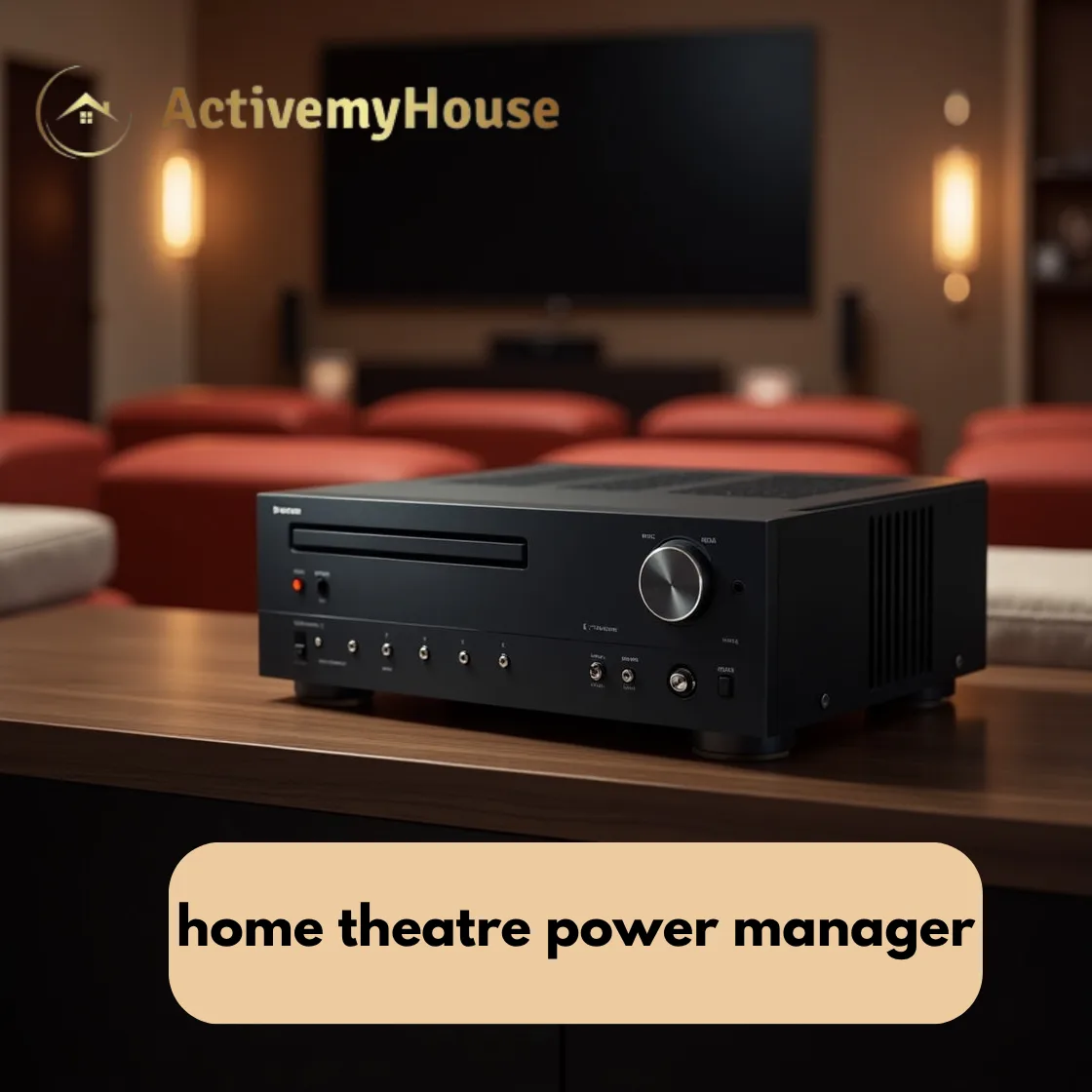A home theatre power manager is one of the most significant yet less known components of any state-of-the-art audio and visual setup. Whether you’re a casual movie viewer or a die-hard audiophile, good power distribution can help enhance performance, protect your equipment, and even save energy.
This thorough guide will answer all of your queries related to power management in home theatres including what it serves, why you need one, and how to choose the best suitable model for your system.
What Is a Home Theatre Power Manager?
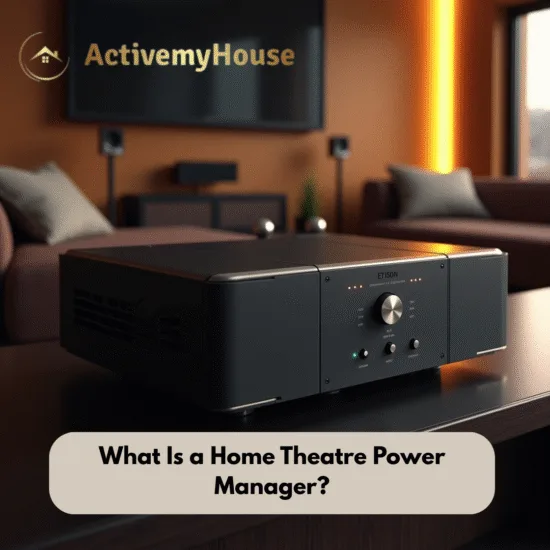
The home theatre power manager is a different device. It regulates and distributes power to your AV components safely. This device is not to be confused with a power strip, as it includes more unique features:
- Surge Protection—Offers protection from sudden and transient voltage spikes.
- Sequential power sequencing makes sure that gadgets switch on and off in the right sequence.
- Noise Filtering—Eliminates electrical noise interfering with audio/video.
- Line Regulation—Keeps steady power flow to avoid damaging appliances.
A home theatre power manager can ensure longer life and maximized performance for all equipment.
What Makes a Home Theatre Power Manager Necessary?
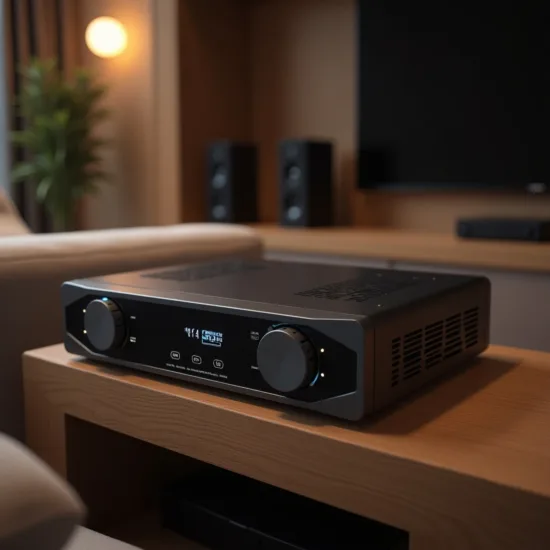
Another benefit of a home theatre power manager when compared to a simple surge protector is that it helps one cut across many lines:
1. Protects Expensive AV Equipment
Power surges, brownouts, and electrical noise can damage amplifiers, projectors, and speakers. Because of this, it is very prudent to institute a power manager specific to home theatre equipment that would assure the delivery of stable power to the units.
2. Prevent Startup/Shutdown Indications
A big power spike can be experienced when several devices are turned on at the same time. A power sequencing function in the home theatre power manager helps prevent overloading.
3. Reduced Electrical Noise
Poor power quality can often introduce humming or static into audio systems. A home theatre power manager filters such interference.
4. Simplified Power Control
Instead of turning each one on or off, everything is controlled by one switch or one remote.
How to Choose the Best Home Theatre Power Manager in 2025
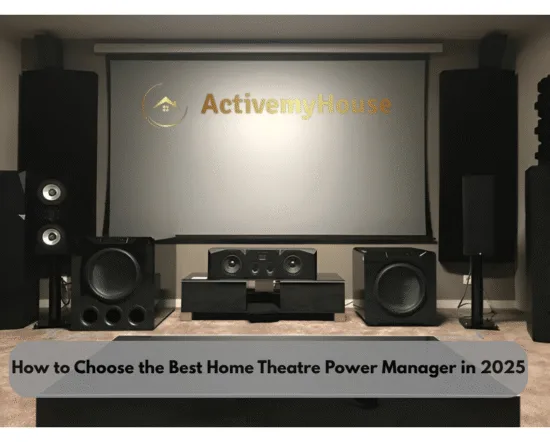
Selecting the right home theatre power manager involves considering these factors:
1. Surge Protection Rating (Joules)
| Joule Rating | Protection Level |
| <1,000J | Basic (budget setups) |
| 1,000–2,500J | Good (mid-range systems) |
| 3,000 J+ | Best (high-end theaters) |
2. Number of outlets
- A minimum of 6 to 8 outlets for standard configurations.
- More than 12 outlets for high-end systems.
3. AVR-Voltage Regulation
- Required if the area has a power fluctuation.
4. Smart Features
- Control over Wi-Fi, energy monitoring, and app integration.
5. Build and Brand Prestige
- Reputable brands: Panamax, Furman, APC, and Monster.
A Home Theatre Power Manager: How Do You Install It?
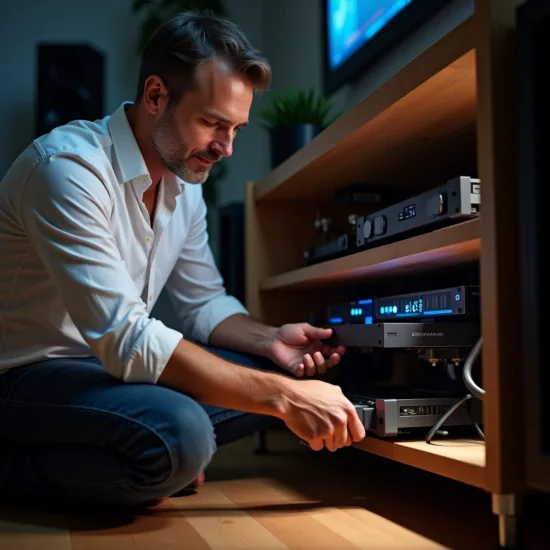
When it comes to home theatre power managers, installation is pretty simple:
- Unplug all devices from existing power strips.
- Attach the power manager to a wall outlet that is grounded.
- Plug components in order ( processor first, subwoofer last)
- Test the sequencing for proper startup and shutdown.
If you are working on an advanced setup with many devices, you would be well advised to consult an electrician to prevent any circuits from being overloaded.
Can a Home Theatre Power Manager Save Energy?
Most definitely! A home theatre power manager does two key functions:
- Prevents Phantom Loads-Disables power to devices that rest in standby mode.
- Optimizes Voltage-Any unstable energy is reduced from being wasted.
Some models even monitor energy consumption using applications.
Is a Home Theater Power Manager the Only Option?
No, a home theatre power manager would be ideal; however, alternatives are
- Basic Surge Protectors (cheaper but not nearly as effective)
- Uninterruptible Power Supplies (UPS) (barely sufficient, extremely bulky to be useful even for short time blackouts)
In terms of thorough safety and performance, however, nothing can compete with a dedicated home theatre power manager.
Advantages of Power Manager
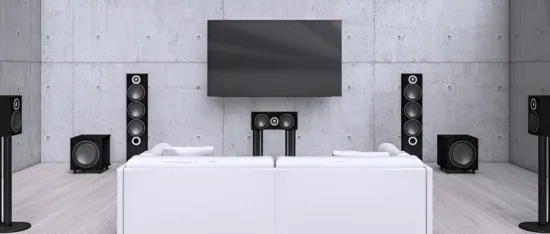
The following are key pros for using a home theatre power manager unit:
1. Protection of the Equipment—It protects equipment against damage caused by surges and brownouts.
2. A/V Performance—Cuts down on electrical noise to create a clearer sound and picture.
3. Simplified Power Control—Power all appliances on/off with a single button.
4. Energy Savings—Minimizes waste due to ‘phantom’ power or standby modes.
5. Longer Equipment Life: Component wear and tear is reduced when electricity fluctuates less.
Does a home theatre need a power manager?
Many people wonder if a home theatre power manager is really needed. Depending on your arrangement, the answer is:
Necessary if:
- You own high-end AV equipment (e.g., 4K projectors, premium speakers).
- Your area has frequent power fluctuations.
- You want to avoid “power-on thumps” from amplifiers.
Optional if:
- You use a basic soundbar and TV.
- Your power supply is already stable.
A home theatre power management system is a good purchase for the majority of home theatre fans.
FAQs
1: Do I need a power manager for a soundbar?
➡ It’s not required; however, having more A/V components can be useful.
2: Would a power manager get rid of humming?
➡ Yes, EMI/RFI filtering addresses electrical interference.
3: How long can power managers last?
➡ On average, 3-5 years, depending on their exposure to surges.
4: Are power managers that cost a lot of money worth it?
➡ If you have top-notch equipment needing serious protection, yes.
5: Can I use a power manager strung along with an extension cord?
➡ Not really. Safety-wise, plug the power conditioner straight into the wall outlet.
Final Thoughts: Is a Home Theatre Power Manager Worth It?
Any home theatre system would look great with a home theatre power manager, especially an expensive one. This is because it protects the system, improves performance, and simplifies power management for it.
No matter the model, be it an entry-level or a sophisticated unit, the best home theatre power manager will keep your A/V setup running smoothly for years.
Learn more about the Real estate investment, luxury villas, and emergency loans by going through these complete Guide
LessInvest.com Real Estate
Invest1now.com real estate
Payday Loans eLoanWarehouse
Luxury Villas Italy Le Collectionist

